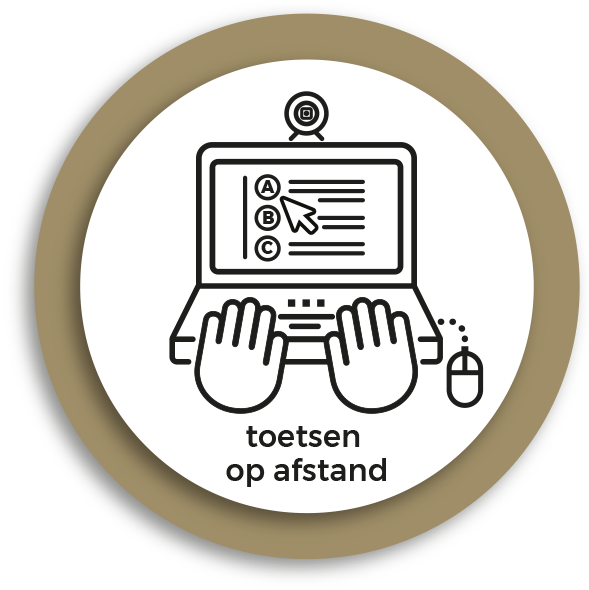Definition
An oral exam is an exam in which a student answers questions orally or gives a pitch/presentation. Oral exams are suitable for assessing the following levels of cognitive learning: remembering, understanding, applying, analysing, evaluating and creating.
Oral exams are often combined with other assessment methods. Often, an online oral exam takes place following submission of a portfolio, project, product or presentation. During an online oral exam, a student may also be allowed to give a short online presentation. This makes it possible to carry out both an observation of an activity and an interview in which you ask the student to explain their actions. A project or product is often combined with a presentation.
Online
Online assessment interview During an online assessment interview, the examiner asks the student questions based on predetermined criteria, using video conferencing software. These could be questions about situations that show …
Approach
Preparation
Questions The questions that you ask during an online assessment interview or oral exam are no different from those that you would ask face-to-face. You can also use images such as an anatomical or technical drawing, …
Tips
*Carry out assessment interviews in groups, so that students can look at each other’s products before the interview, ask questions and provide peer feedback. The examiner can of course also ask questions and give feedback. See this brochure by Inholland (in Dutch) for more information on organising peer feedback. *Give students the opportunity to practice an assessment interview by planning an online meeting in which students can practice with each other. Make sure that they have a copy of the assessment form and let them give each other feedback based on the form. The students learn a lot about their own performance through peer feedback, improve their capacity for self-reflection and inspire each other. See this brochure by Inholland (in Dutch) for more information on organising peer feedback. *Giving the students access to a few sample questions before the online oral exam will help them to understand what kind of questions they can expect. They can use the practice questions to check that they have learnt everything that they need to. *Encourage students to make their own exam questions to prepare for an online oral exam. Using online flashcards, the questions can be shared for other students to practice with. You can also use some of the questions in the exam. *Provide the student with feedback immediately after the assessment interview and before giving a grade, as this is when the student is most receptive to the feedback. *An online assessment interview on completion of a thesis or a work placement may seem impersonal to a student and may not reflect the effort made. In such cases, a face-to-face interview is clearly preferable to an online assessment interview. *A possible alternative to an online oral exam is an assignment. *A possible alternative to an online oral exam is an exam with open-ended and/or closed-ended questions. *See whether it is possible to encourage a feedback culture, for example by giving some of the exam a formative rather than a summative function. You can read more about this in the book Toetsrevolutie (in Dutch).
References
- When old becomes new (Akimov and Malin 2020) describes how online oral exams can be used as an online assessment tool or to supplement other assessment tools. The online oral exam is mainly used as an interview. Tips are …

